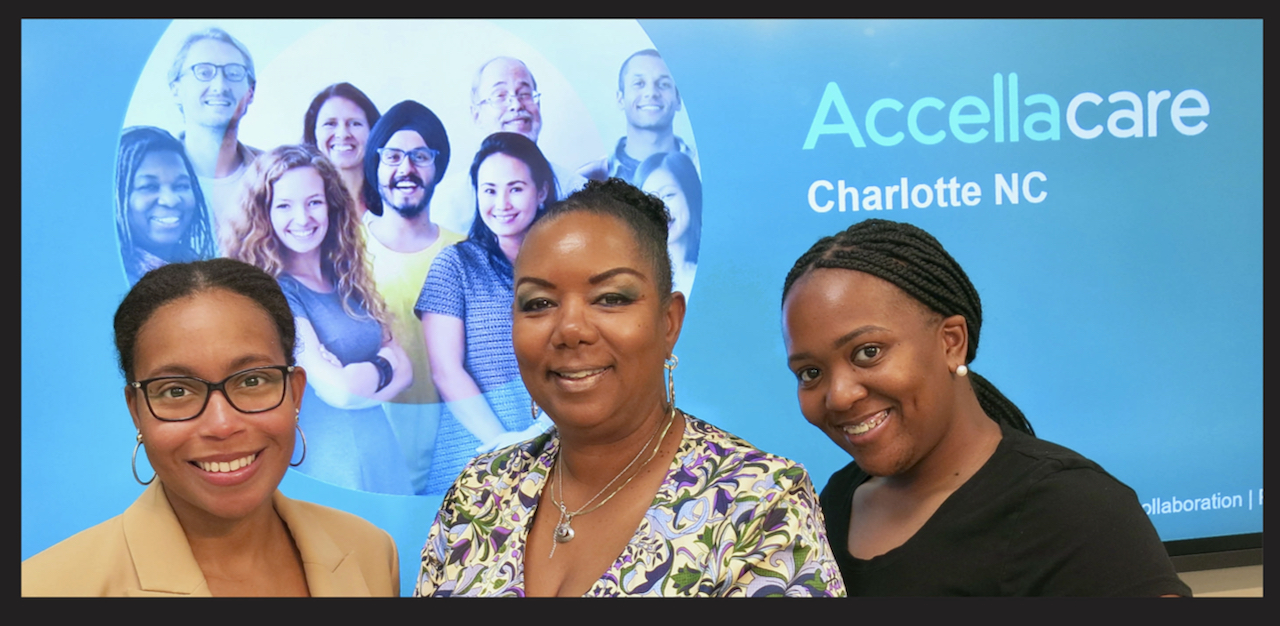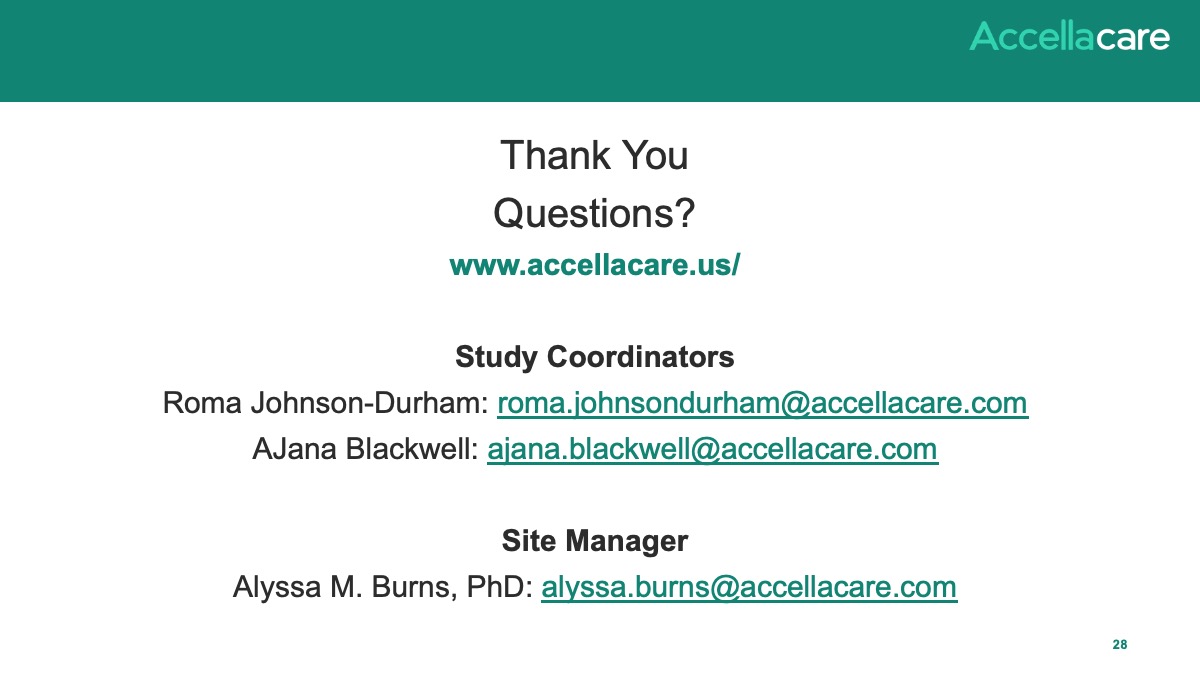
May 16, 2023
The questioning began with the infamous Tuskegee Syphilis Study, in which researchers withheld medicine from nearly 400 Black men without their knowledge, just to see what would happen, and 100 of them died of a treatable disease.
Then there were questions like whether Big Pharma would rather conduct studies of drugs that people would take for a long time just to feel a bit better while they were sick, versus drugs that might cure the disease and not produce as many sales and profits over the long term.
In short, it was not a cakewalk for the clinical team from AccellaCare, a global company that conducts drug efficacy studies for pharmaceutical companies and others. But Dr. Alyssa Burns, a Ph.D. researcher who is manager of Charlotte site operations for AccellaCare’s Clinical Research Service, closed the meeting by saying, “You guys asked very thought-provoking questions, and I really appreciate that.”
Dr. Burns was joined by Clinical Research or Study Coordinators Roma Johnson-Durham and Ajana Blackwell.
The team’s presentation explored the meaning of terms, the route that prospective study participants take before, during and after joining any research study, and some of the people and procedures in place to keep patient safety foremost in corporate culture. Dr. Burns asserted that the clinical research industry had become rigorously transparent since the Tuskegee years. This is a complex part of the story, and one touched on in many places during the video below.
Forum participants asked many questions that the presenters were unable to answer with specificity. Research projects can be one-visit commitments or go on for years. Some study sponsors reimburse participants for transportation; some do not. Johnson-Durham suggested that payments to participants might range from $10 to $200, depending on the study.
One possible long-term benefit from Tuesday’s presentation occurred after the meeting ended. About half of those present for the meeting gathered at the back of the room, talked and learned of connections bridging the divide between the clinical staff and the audience. Some of the caution and suspicion hanging in the air during the meeting seemed to dissipate as people discovered life connections, shared religious commitments and shared experiences. People thus drawn together may be more inclined to support one another – the clinicians desperate to ensure that drugs are safely but thoroughly tested for efficacy among minority groups often left out of earlier studies, and the Forum participants desperate to find ways to improve their communities and the lives of their people.
Dr. Burns asked people in the in-person and livestreamed audience to communicate with her about their questions. The last slide in the presentation, which lists her contact information, is below the video from this morning.
